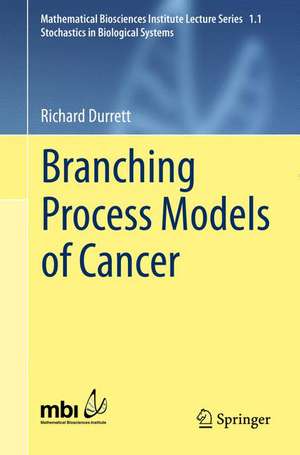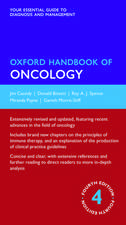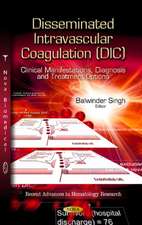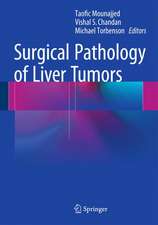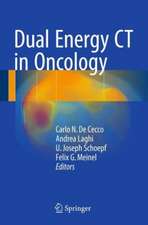Branching Process Models of Cancer: Mathematical Biosciences Institute Lecture Series, cartea 1.1
Autor Richard Durretten Limba Engleză Paperback – 6 iul 2015
Richard Durrett is a mathematics professor at Duke University, USA. He is the author of 8 books, over 200 journal articles, and has supervised more than 40 Ph.D students. Most of his current research concerns the applications of probability to biology: ecology, genetics and most recently cancer.
Preț: 237.16 lei
Nou
Puncte Express: 356
Preț estimativ în valută:
45.38€ • 47.38$ • 37.47£
45.38€ • 47.38$ • 37.47£
Carte tipărită la comandă
Livrare economică 15-29 aprilie
Preluare comenzi: 021 569.72.76
Specificații
ISBN-13: 9783319160641
ISBN-10: 3319160648
Pagini: 62
Ilustrații: VII, 63 p. 6 illus., 2 illus. in color.
Dimensiuni: 155 x 235 x 7 mm
Greutate: 0.11 kg
Ediția:2015
Editura: Springer International Publishing
Colecția Springer
Seriile Mathematical Biosciences Institute Lecture Series, Stochastics in Biological Systems
Locul publicării:Cham, Switzerland
ISBN-10: 3319160648
Pagini: 62
Ilustrații: VII, 63 p. 6 illus., 2 illus. in color.
Dimensiuni: 155 x 235 x 7 mm
Greutate: 0.11 kg
Ediția:2015
Editura: Springer International Publishing
Colecția Springer
Seriile Mathematical Biosciences Institute Lecture Series, Stochastics in Biological Systems
Locul publicării:Cham, Switzerland
Public țintă
GraduateCuprins
Multistage Theory of Cancer.- Mathematical Overview.- Branching Process Results.- Time for Z_0 to Reach Size M.- Time Until the First Type 1.- Mutation Before Detection?.- Accumulation of Neutral Mutations.- Properties of the Gamma Function.- Growth of Z_1(t).- Movements of Z_1(t).- Luria-Delbruck Distributions.- Number of Type 1's at Time T_M.- Gwoth of Z_k(t).- Transitions Between Waves.- Time to the First Type \tau_k, k \ge 2.- Application: Metastasis.- Application: Ovarian Cancer.- Application: Intratumor Heterogeneity.
Recenzii
“It provides a survey of cancer modeling using multitypebranching processes. … the text should be accessible for graduate students inmathematics and biology who are familiar with Poisson processes andcontinuous-time Markov chains.” (Matthias Meiners, zbMATH 1328.92004, 2016)
Notă biografică
Richard Durrett is mathematics professor at Duke University, USA. He is the author of 8 books, over 200 journal articles and has supervised more than 40 Ph.D. students. Most of his current research concerns the applications of probability to biology: ecology, genetics, and most recently cancer.
Textul de pe ultima copertă
This volume develops results on continuous time branching processes and applies them to study rate of tumor growth, extending classic work on the Luria-Delbruck distribution. As a consequence, the authors calculate the probability that mutations that confer resistance to treatment are present at detection and quantify the extent of tumor heterogeneity. As applications, the authors evaluate ovarian cancer screening strategies and give rigorous proofs for results of Heano and Michor concerning tumor metastasis. These notes should be accessible to students who are familiar with Poisson processes and continuous time. Richard Durrett is mathematics professor at Duke University, USA. He is the author of 8 books, over 200 journal articles, and has supervised more than 40 Ph.D.
students. Most of his current research concerns the applications of probability to biology: ecology, genetics, and most recently cancer.
students. Most of his current research concerns the applications of probability to biology: ecology, genetics, and most recently cancer.
Caracteristici
The first volume published in the new series Mathematical Biosciences Institute Concise and easy to understand for graduate students familiar with Poisson processes and continuous time Markov chains Includes examples and theorems throughout
